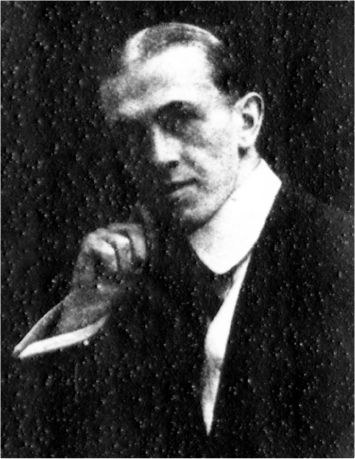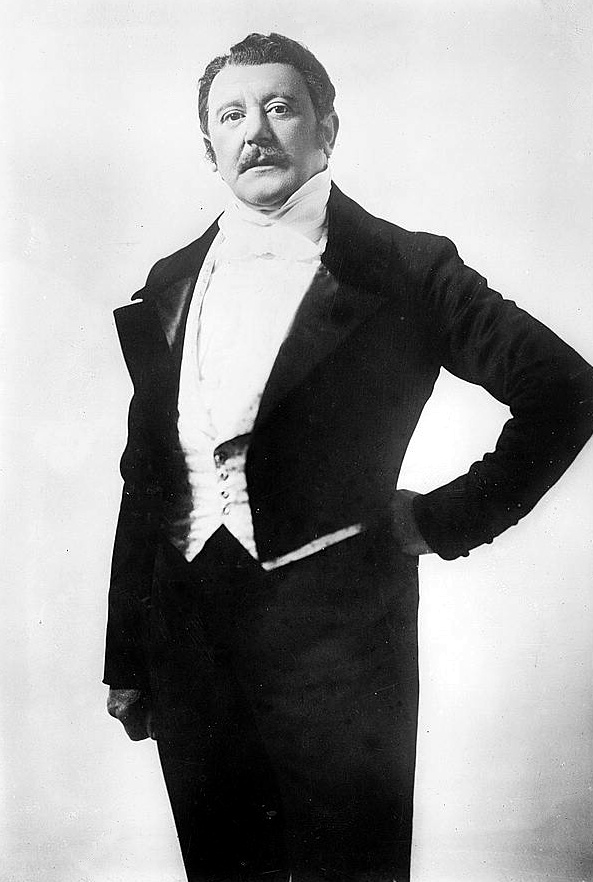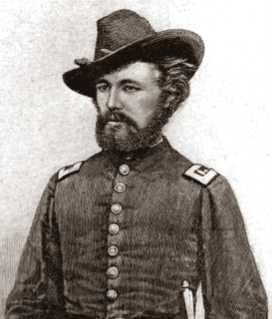|
Les Dominos Roses
''Les Dominos roses'' (The Pink Dominos) is a three-act farce by Alfred Delacour and Alfred Hennequin. It concerns a plan by two wives to test their husbands' fidelity. At a masked ball at the Paris Opéra, each wife disguises herself in a pink domino – a hooded cloak with a mask – to woo the other's husband. The play was first produced at the Théâtre du Vaudeville, Paris on 17 April 1876 and ran for 127 performances. It was adapted for the West End and Broadway stages as ''The Pink Dominos'', and later became the basis of a Viennese operetta ('' Der Opernball'', 1898) and a musical comedy ('' To-Night's the Night'', 1914). Background and first production In 1876 the Théâtre du Vaudeville emerged from a succession of short and unprofitable runs with the production of ''Le Procès Veauradieux'' by Alfred Delacour and Alfred Hennequin, which ran for 175 performances, at a time when a run of 100 performances was regarded as a success for a Parisian theatre. The authors' n ... [...More Info...] [...Related Items...] OR: [Wikipedia] [Google] [Baidu] |
Farce
Farce is a comedy that seeks to entertain an audience through situations that are highly exaggerated, extravagant, ridiculous, absurd, and improbable. Farce is also characterized by heavy use of physical humor; the use of deliberate absurdity or nonsense; satire, parody, and mockery of real-life situations, people, events, and interactions; unlikely and humorous instances of miscommunication; ludicrous, improbable, and exaggerated characters; and broadly stylized performances. Genre Despite involving absurd situations and characters, the genre generally maintains at least a slight degree of realism and narrative continuity within the context of the irrational or ludicrous situations, often distinguishing it from completely absurdist or fantastical genres. Farces are often episodic or short in duration, often being set in one specific location where all events occur. Farces have historically been performed for the stage and film. Historical context The term ''farce'' is deri ... [...More Info...] [...Related Items...] OR: [Wikipedia] [Google] [Baidu] |
The Era (newspaper)
''The Era'' was a British weekly paper, published from 1838 to 1939. Originally a general newspaper, it became noted for its sports coverage, and later for its theatrical content. History ''The Era'' was established in 1838 by a body of shareholders consisting of licensed victuallers and other people connected with their trade. The journal was intended to be a weekly organ of the public-house interest, just as the ''Morning Advertiser'' was then its daily organ. In the first two or three years of its existence, its political stance was broadly Liberal. Its first editor, Leitch Ritchie, proved too liberal for his board of directors, and in addition to editorial clashes, the paper was a commercial failure. Ritchie was succeeded by Frederick Ledger, who became sole proprietor as well as editor. He edited the paper for more than thirty years, gradually changing its politics from Liberalism to moderate Conservatism. Politics, however, ceased to be a major concern of ''The Era''. Its ... [...More Info...] [...Related Items...] OR: [Wikipedia] [Google] [Baidu] |
Percy Greenbank
Percy Greenbank (24 January 1878 – 9 December 1968) was an English lyricist and librettist, best known for his contribution of lyrics to a number of successful Edwardian musical comedies in the early years of the 20th century. His older brother, the dramatist Harry Greenbank, had a brilliant career in the 1890s that was cut short by his death at the age of 33. Percy picked up where his brother had left off, writing lyrics for some of the most popular musicals from 1900 through World War I and even afterwards. Life and career Greenbank was born in London, son of Richard and Mary Greenbank. He was Harry Greenbank's younger brother. Percy studied law, but instead decided to become a journalist, contributing to such journals as ''Punch'', ''The Sketch'' and ''The Tatler'', and to write for the theatre.Gaye, p. 672 After Harry's death, George Edwardes asked the younger Greenbank to collaborate with Adrian Ross on the lyrics for ''The Messenger Boy'' and also interpolated tw ... [...More Info...] [...Related Items...] OR: [Wikipedia] [Google] [Baidu] |
Jerome Kern
Jerome David Kern (January 27, 1885 – November 11, 1945) was an American composer of musical theatre and popular music. One of the most important American theatre composers of the early 20th century, he wrote more than 700 songs, used in over 100 stage works, including such classics as " Ol' Man River", "Can't Help Lovin' Dat Man", " A Fine Romance", "Smoke Gets in Your Eyes", "The Song Is You", "All the Things You Are", "The Way You Look Tonight" and "Long Ago (and Far Away)". He collaborated with many of the leading librettists and lyricists of his era, including George Grossmith Jr., Guy Bolton, P. G. Wodehouse, Otto Harbach, Oscar Hammerstein II, Dorothy Fields, Johnny Mercer, Ira Gershwin and Yip Harburg. A native New Yorker, Kern created dozens of Broadway musicals and Hollywood films in a career that lasted for more than four decades. His musical innovations, such as 4/4 dance rhythms and the employment of syncopation and jazz progressions, built on, rather than rejec ... [...More Info...] [...Related Items...] OR: [Wikipedia] [Google] [Baidu] |
Paul Rubens (composer)
Paul Alfred Rubens (29 April 1875 – 5 February 1917) was an English songwriter and librettist who wrote some of the most popular Edwardian musical comedies of the early twentieth century. He contributed to the success of dozens of musicals. Born in Kensington, London, he attended Winchester College before studying law at University College, Oxford. He began writing songs for shows at the age of 10 and had his first major success with "The Little Chinchilla" for the hit musical ''The Shop Girl'' when he was 19 years old. This was soon followed by songs for, among others, the hit musical ''San Toy''. In 1899, he wrote songs for the international hit ''Florodora'', which brought him wider fame. Producer George Edwardes hired him as an "additional material" writer for, among others, ''The Messenger Boy'' (1900), ''The Toreador'' (1901), ''A Country Girl'' (1902), ''The Girl from Kays'' (1902), ''The School Girl'' (1903), '' The Cingalee'' (1904) and '' The Blue Moon'' (1905), wr ... [...More Info...] [...Related Items...] OR: [Wikipedia] [Google] [Baidu] |
Richard Traubner
Richard Traubner (November 24, 1946 – February 25, 2013) was an American journalist, author, operetta scholar and historian, and lecturer on theatre and (mostly musical) film. His best-known book, ''Operetta: A Theatrical History'', was first published in 1983. According to ''Opera News'', "Traubner was universally regarded as the foremost expert on operetta in the U.S.""Richard Traubner" ''Opera News'', Obituaries, May 2013 – Vol. 77, No. 11 He reviewed numerous opera and theatre productions and wrote widely on opera, musical theatre, classical music and film. He also wrote reviews, liner and program notes and participated in theatre productions as translator, director and designer. Biography Traubner was the son of Muriel and Edward Traubner. He attended Boston Universit ...[...More Info...] [...Related Items...] OR: [Wikipedia] [Google] [Baidu] |
Richard Heuberger
Richard Franz Joseph Heuberger (18 June 1850 in Graz, Austria – 28 October 1914 in Vienna, Austria) was an Austrian composer of operas and operettas, a music critic, and teacher. Heuberger was born in Graz, the son of a bandage manufacturer. He initially studied engineering, but gave it up in 1876, and turned to music. He studied at the Graz Conservatory (where he studied with Robert Fuchs), and later transferred to Vienna, where he eventually became the chorus master of the Wiener Akademischer Gesangverein, conductor of the Wiener Singakademie, director of the Wiener Männergesang-Verein (Vienna Men's Choral Association), and a teacher at the Konservatorium der Stadt Wien. As a music critic he wrote for the ''Neues Wiener Tagblatt'' from 1881, the ''Allgemeine Zeitung'' in Munich from 1889, and (succeeding Hanslick) on the ''Neue Freie Presse'' from 1896 until 1901. He also edited the ''Musikbuch aus Österreich'' (1904–6).Andrew Lamb. 'Heuberger, Richard (Franz Joseph)' in ... [...More Info...] [...Related Items...] OR: [Wikipedia] [Google] [Baidu] |
Viktor Léon
Victor Léon, also Viktor Léon (born Victor Hirschfeld; 4 January 1858, Szenic, Nyitra County, Kingdom of Hungary, Austrian Empire (today Senica, Slovakia) – 23 February 1940, Vienna) was a well-known Jewish Austrian-Hungarian librettist. He collaborated with Leo Stein to produce the libretto of Franz Lehár's romantic operetta ''The Merry Widow'' (''Die lustige Witwe''). Biography Hirschfeld began a career as a journalist, and then branched out in the theatre under the pseudonym that was to become familiar - Viktor Léon. Between 1880 and 1884 he wrote one-act libretti for Vienna's variety theatre, the Carl-Schultze-Theater in Hamburg, and the German Theatre in Pest, collaborating with composers such as Max von Weinzierl, Rudolf Raimann and Alfred Zamara. Then came a three-act collaboration with Zamara, ''Der Doppelgänger'', produced at the Staatstheater am Gärtnerplatz in Munich in September 1886. He then wrote a libretto for Johann Strauss. Alas, '' Simplicius'', a stor ... [...More Info...] [...Related Items...] OR: [Wikipedia] [Google] [Baidu] |
Charles Hawtrey (actor, Born 1858)
Sir Charles Henry Hawtrey (21 September 1858 – 30 July 1923) was an English actor, director, producer and manager. He pursued a successful career as an actor-manager, specialising in debonair, often disreputable, parts in popular comedies. He occasionally played in Sheridan and other classics, but was generally associated with new works by writers including Oscar Wilde and Somerset Maugham. Born to a long-established county family, Hawtrey was one of three of his parents' five sons to pursue a theatrical career. Before going on the stage he had considered joining the army, but failed to apply himself to the necessary studies to qualify for a commission. Once established as an actor he quickly took on the additional role of a manager, boosted by an early success with his own adaptation of a German farce presented in London as ''The Private Secretary'', which made his fortune. A lifelong gambler, both with theatrical productions and on horseracing, to which he was addicted ... [...More Info...] [...Related Items...] OR: [Wikipedia] [Google] [Baidu] |
Charles Francis Coghlan
Charles Francis Coghlan (11 June 1842 – 27 November 1899) was an Anglo-Irish actor and playwright once popular on both sides of the Atlantic Ocean. Early life Charles F. Coghlan was born on 11 June 1842, in Paris, France to British subjects, Francis (sometimes spelled Frances) and Amie Marie (née Ruhly) Coghlan. His father, a native of Dublin, Ireland, was the founder of Coghlan's Continental Dispatch and publisher of Coghlan's Continental Guides, and counted among his friends, Charles Dickens, Charles Reade, and other literary figures of the day. Amie Coghlan was born on the English Channel Island of Jersey sometime around 1821. Charles Coghlan was later raised in Peterborough, Cambridgeshire and Hull, Yorkshire and though originally groomed for a career in law he had chosen instead to be an actor whilst still in his teens.Charles Coghlan is Dead - New York Times 28 November 1899; pg. 7; Career Charles Coghlan began his stage career in 1859 as a minor player with the ... [...More Info...] [...Related Items...] OR: [Wikipedia] [Google] [Baidu] |
Charles Wyndham (actor)
Sir Charles Wyndham (23 March 1837 – 12 January 1919), ''né'' Charles Culverwell, was an English actor and theatre proprietor. Wyndham's Theatre in London is named after him, and he also built the Noël Coward Theatre, New Theatre (now the Noël Coward Theatre) nearby. Wyndham's family intended him for a medical career, and he studied medicine while enthusiastically engaging in amateur theatricals in his spare time. Torn between medicine and the stage, he spent three years in the US as a surgeon in the Union army in the American Civil War and on two occasions acted unsuccessfully on the New York stage. After returning to Britain and establishing himself as an actor he made further trips to the US between 1882 and 1910, playing in theatres all around the country. In London, Wyndham became known for his comic skills, both in light comedy and farce. He took over the management of the Criterion Theatre in 1876 and remained in charge there for more than 20 years. "Criterion fa ... [...More Info...] [...Related Items...] OR: [Wikipedia] [Google] [Baidu] |
James Albery
James Albery (4 May 1838 – 15 August 1889) was an English dramatist. Life and career Albery was born in London. On leaving school he entered an architect's office and started to write plays. His farce ''A Pretty Piece of Chiselling'' was given its first production by the Ingoldsby Club in 1864. After some failures, his adaptation, ''Dr Davy'', was produced at the Lyceum Theatre, London (1866). His most successful piece, ''Two Roses'', a comedy, was produced at the Vaudeville Theatre in 1870, in which Sir Henry Irving made one of his earliest London successes as Digby Grant. The production ran for 300 performances. Albery was the author of a large number of other plays and adaptations, including ''Coquettes'' (1870); ''Pickwick'', a four-act drama (based on Dickens's ''The Pickwick Papers'' (1871); '' The Pink Dominos'' (1877), a farce that ran for an extremely successful 555 performances and was one of a series of adaptations from the French which he made for the Criterio ... [...More Info...] [...Related Items...] OR: [Wikipedia] [Google] [Baidu] |
.jpg)





